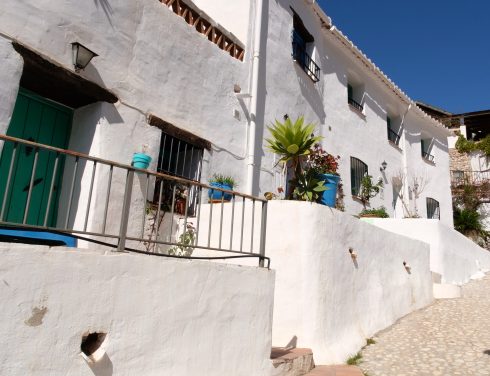AROUND 3,000 villages in Spain have been abandoned in recent decades due to depopulation as younger people go to big cities for work.
Accessibility and a community built around a defunct industry are other factors that have led to the abandonments.
The La Razon newspaper has listed Belchite in Zaragoza, Granadilla in Caceres, and El Acebuchal in Malaga province as places ‘you must visit before they disappear’.
READ MORE:
- Tiny town in Spain launches a dating app in a bid to save itself from depopulation
- Depopulation group sets sights on female farmers with new initiative in rural Spain
- Village in Spain’s Andalucia starts giving youngsters cash in bid to stem threat of rural depopulation

El Acebuchal in recent years though has been fighting back as a rural destination where somebody wanting a quiet break can get plenty of peace.
The village, next to Frigiliana, ‘deserves a visit’, says La Razon.
It highlights that it is ‘nestled on the southern slopes of the Sierra Almijara, and this town is a paradise lost in time’.
It said it was abandoned for almost 50 years, but has been rebuilt and is experiencing a second chance thanks to rural tourism.”
“It is characterised by its whitewashed houses adorned with lavender flowers, cobbled streets and breathtaking views of the Mediterranean- all the hallmark of this small town,” the review continued.
El Acebuchal has 33 homes, which is very much down to Virtudes Sanchez and Antonio García back in 1998.
They set about rebuilding the ruins of the village, including renovating the old home of their parents.

Despite the lack of electricity and water during the reconstruction, the village acquired a captivating charm and the recommended way of getting there is via a small trail from Frigiliana.
After its restoration, El Acebuchal has become an ideal destination for people looking to enjoy a peaceful holiday, either for a short period or a long stay.
An outstanding feature is the absence of mobile phone coverage (although wi-fi is available), which allows you to completely disconnect from the old daily routine of work or constant contact with family and friends.

The village also has its own bar-restaurant, where traditional dishes dating back more than 70 years are served.
Click here to read more Andalucia News from The Olive Press.








